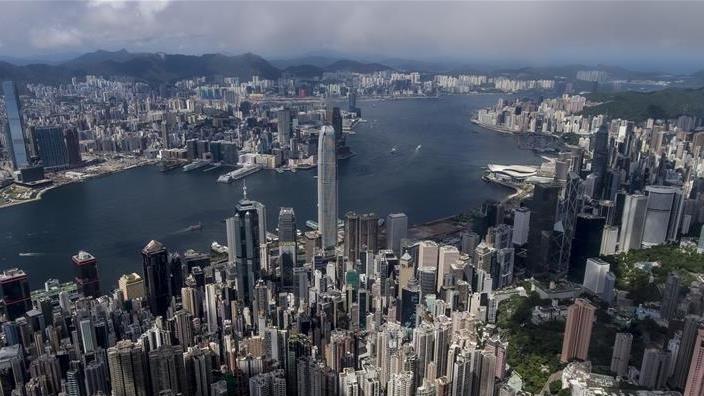 This photo dated July 16, 2020 shows commercial buildings on both sides of Victoria Harbour in Hong Kong. (PHOTO / XINHUA)
This photo dated July 16, 2020 shows commercial buildings on both sides of Victoria Harbour in Hong Kong. (PHOTO / XINHUA)
The central government's plan to allow investments for private wealth across the border between the Hong Kong Special Administrative Region (HKSAR) and its increasingly affluent southern region will be capped at 150 billion yuan (US$23 billion) in each direction.
The Wealth Management Connect program, which will allow residents of Hong Kong and Macao SARs as well as major cities in China’s southern Guangdong province to invest across the border, will also have an individual quota of 1 million yuan, according to the Hong Kong Monetary Authority (HKMA).
At the initial stage, available wealth management products will cover non-complex products with medium to low risk.
Hong Kong Monetary Authority's spokesperson
The program will take an “incremental approach, starting with a smooth launch with possibilities for enhancements down the road,” a HKMA spokesperson said in an emailed statement to Bloomberg. “At the initial stage, available wealth management products will cover non-complex products with medium to low risk.”
ALSO READ: Bay Area's Wealth Management Connect program 'too big to ignore'
Talks are still going on between regulators in three jurisdictions, as well as with the financial industry.
Hong Kong’s Private Wealth Management Association hopes the the launch of the program, which will initially target retail banking clients, will take place early next year, said its chairman, Amy Lo.
The long-awaited program was announced without details in late June.
Chief Executive Carrie Lam Cheng Yuet-ngor is lobbying for more financial integration to build the city’s presence as a hub for private wealth and as a prominent offshore renminbi center.
READ MORE: CE: Hong Kong, Shenzhen can jointly build 'twin city economy'
Chinese President Xi Jinping called for deeper integration during a visit earlier this month to Shenzhen, China’s sprawling tech hub that sits just on the Hong Kong border.
The program is at first likely to only allow simple and non-complex products as defined by Hong Kong’s Securities and Futures Commission in areas such as foreign exchange, fixed income and mutual funds, Lo said.


